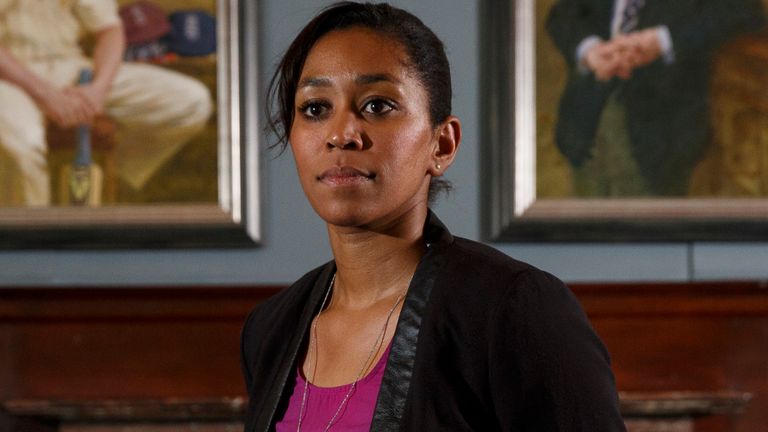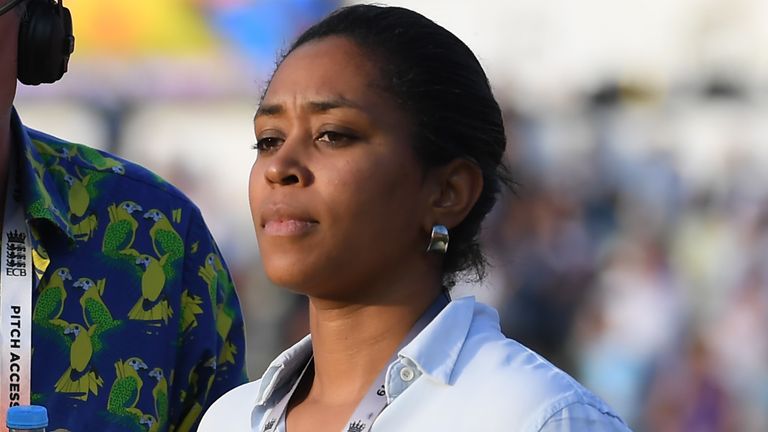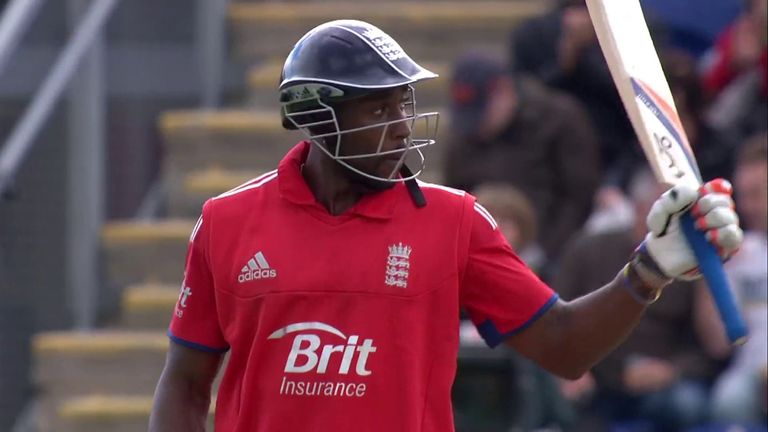Cricket must undergo systemic change to embrace all communities and be anti-racist, says Raj Tulsiani
"Well-meaning programmes have an effect but unless you have the ambition and the investment in systemic change, it's just window-dressing. That window-dressing may affect hundreds of lives, but it will not change the game"
Monday 29 June 2020 12:33, UK
Cricket must undergo systematic change at all levels if it wants to be anti-racist and reach out to embrace all local communities.
That's the view expressed by Raj Tulsiani - author of 'Diversity and Inclusion for Leaders' and Chief Executive Officer of Green Park - on a special edition of the Sky Sports Cricket podcast focusing on racism and diversity in the game, which you can watch in the YouTube stream above or listen to as a podcast in the Spotify player below.
Tulsiani was joined by former England all-rounder Phillip DeFreitas, former Gloucestershire captain and coach Mark Alleyne, and broadcaster and current director of Women's Cricket at Surrey Ebony Rainford-Brent on the podcast panel, chaired by host Mark Butcher.
It's a little over a month since George Floyd's murder in Minnesota by the police sparked worldwide protests and conversation about race and equality.
It's a conversation that remains integral to the ECB's aspiration of becoming a game for everyone - a goal it admits has barriers to overcome despite the introduction of its 2018 Inclusion and Diversity Plan, which includes the South Asian Action Plan.
The ECB said in a statement earlier this month that this plan "is already having positive results for all BAME groups including the installation of non-traditional playing facilities in urban areas, the recruitment of BAME female community mentors and the delivery of cricket at schools with a higher than national average representation of BAME pupils".
But at the same time BAME role-models are few - the number of black players playing professional cricket has fallen by 75 per cent in the last 25 years while there are no black head coaches or decision-makers in the men's game.
Tulsiani says there needs to be greater accountability at all levels of the game to ensure the game is accessible to all.
"From a personal perspective I think we've come a long way from somebody in the dressing room saying 'we've brought an extra bar of soap for you this week' or, when we're playing Caribbean and Commonwealth, saying 'you're in the wrong dressing room'," he said.
"We have in many ways moved forward from that type of racism; what we face now is more institutional prejudice and that can only be dealt with by a systematic mechanism.
"When you look at any system, as we do with all different types of organisations, you look at leadership, administration and grassroots.
"So not having black coaches, or coaches whose lived experience is relevant to the communities that we're trying to engage with, takes any heat out of the system.
"Forget about how much bias there may be higher up in the system; at the grassroots level, clubs have an extremely important part to play and they are not being held accountable whether that is on women's cricket or reaching out into local communities.
"I've been at Dulwich now for the best part of 20 years and it's okay. It's a club that does well. But we're less than a mile and a half away from Brixton and our black playing staff has reduced.
"We run seven teams on a Saturday so it's a big club by modern standards so there is definitely this piece around a move away from rhetoric and let's start putting in systematic accountability for the clubs, counties, administrators and leaders of the game to all be singing off the same hymn-sheet."
Earlier this year Surrey CCC launched the ACE Programme, which aims to encourage more 11-18-year-old boys and girls from the local African Caribbean community to enter the club's performance pathway, while not far away across the capital the London Schools Cricket Association seeks to promote junior cricket for all.
But Rainford-Brent says children from Caribbean and BAME backgrounds are being let down by the lack of a well-funded, nationwide talent pathway and that change has to be driven from the top of the game.
"The Telegraph released a graphic around Board representation for black people in the UK," she said. "I think they went through 20 of the major sports and there was one person in athletics.
"So first of all, if you've got nobody at the top table - and I know from my experience at Surrey that we are able to have this ACE agenda at the top table conversation that fed through the organisation because there was someone asking those questions.
"If that is not happening at the ECB level and it is not happening in the power room then you are going to see the reflection of less than one per cent participation at grassroots, which is what we're seeing.
"I don't know how or where they are going to start recruiting but I think they've got to get that in order.
"Then you need to come down to the levels of the talent pathway; is this considered in all the strands? I think the honest answer at the moment is, it isn't. That needs to happen.
"Then secondly, I think programmes like ACE are starting points but there's a lot of work to do reconnecting with the grassroots. We're talking to some big funders who could see it as a model that's built out.
"It's not hard. Look at how the women's game has grown because of the investment that was put into it. This is the same in the sense that you take targeted markets, you understand their needs and you go and service your communities.
"This is the crux of it. Cricket doesn't service the communities. It services the original communities it was intended for. You think about cricket as game set up in the empire, at private schools, for the elite. That is what our game is still servicing, unfortunately, and that is what we're seeing as a predominant coming through.
"It is progressing but now we need to really break that down and get into the heart of the game."
Given that there were only nine black players in county cricket in 2019 and that only two out of 118 coaches and support staff throughout the professional game are from BAME backgrounds, Tulsiani believes cricket needs to take a broader view.
"I agree with much of that [Rainford-Brent's view] in terms of tactical but it does nothing to address what I think the principle issue here is - that is making cricket anti-racist.
"As we've seen with lots of organisations, you can build more representation in the lower ends of your organisation or sport but unless that proportionally travels through administration and leadership, you end up with a fish with a rotten head and a leaky bucket, so people just don't stick with it.
"So I think these kind of well-meaning programmes have an effect but unless you have the ambition and the investment in systemic change, it's just window-dressing.
"That window-dressing may affect hundreds of lives, but it will not change the game.
"I could put an ethnic minority on every county board in six months but unless they have got a mandate for inclusion, unless there is governance and measurement around inclusion, and constant training, then really what you're doing is you're not addressing the real issue which is, we're not getting treated the same.
"For me that's a systemic issue that requires a systemic solution. I hope cricket has the appetite."







